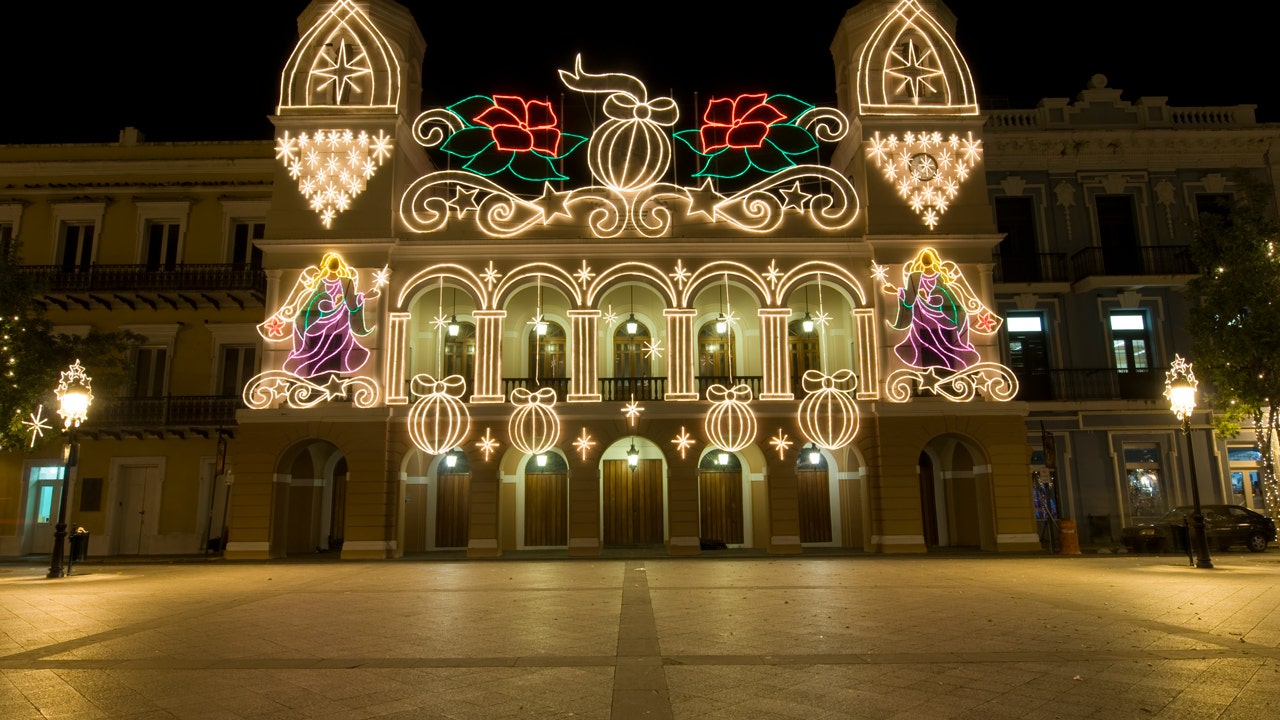Massachusetts
Massachusetts vs. Christians on transgenderism: When religious discrimination becomes state establishment of religion

Kitty and Matthew Burke, a Catholic couple facing fertility struggles, wanted to become foster parents, and they eventually wanted to adopt. Too bad for them, they live in Massachusetts and are observant Catholics.
The state rejected their application to become foster parents on the basis that they “would not be affirming to a child who identified as LGBTQIA.” The Burkes are suing Massachusetts in a case that alleges clear religious discrimination.
UP FOR DEBATE: WHERE TRUMP, DESANTIS, AND REST OF REPUBLICAN 2024 FIELD STAND ON KEY ISSUES
But the case, being argued on the Burkes’ behalf by the Becket Law, and the state’s regulations on adoption point toward something more devious: Massachusetts is establishing a state religion, with its own faith-based dogma and spirituality, and ruling nonadherents to be second-class citizens.
Massachusetts regulations dictate that all foster and adoptive parents must abide by the teachings of gender ideology, specifically the notion that children have an interior gender that is undetermined by their biological sex — and that children have the right to change their gender.
The Code of Massachusetts Regulations reads thus: “A foster/pre-adoptive parent applicant must demonstrate, to the satisfaction of the Department the ability … to promote the physical, mental, and emotional well-being of a child placed in his or her care, including supporting and respecting a child’s sexual orientation or gender identity.”
As the Burkes say in their complaint, this is “an absolute bar for Catholics who agree with the Church’s teaching on sex, marriage, and gender.”
When Washington state enforced similar regulations against a Seventh-day Adventist couple, a federal court blocked their enforcement, explaining that it was religious discrimination: “If the only factor weighing against an otherwise qualified applicant has to do with their sincerely held religious beliefs, the Department must not discriminate against a foster care applicant based on their creed.”
But calling these regulations religious discrimination doesn’t quite go far enough. Massachusetts and Washington didn’t merely create rules that discriminate against Catholics and Seventh-day Adventists. They discriminate against Muslims and Pentecostals too.
These state regulations also discriminate against secular, irreligious couples who do not believe that a boy who declares himself really a girl is actually a girl.
Lots of people, including the governing class of Massachusetts, believe that a boy who declares himself really a girl may in fact be a girl who was just “assigned the wrong gender at birth.”
This belief only became elite dogma in the last few years. It is also a belief not at all required by logic or science. Its premise is that we all have inner genders with no biological markers, which is ultimately a spiritual belief. It is believed on faith alone.
If you do not share this faith-based spirituality, Massachusetts believes you are not fit to adopt or foster children. Thus Massachusetts has once again established a state religion — one that happens to be harmful to children.
CLICK HERE TO READ MORE FROM THE WASHINGTON EXAMINER

Massachusetts
Why Mass. state universities are getting $14M to increase graduation rates

When the state started directing SUCCESS funding to community colleges, it contributed to a 10% increase in student retention between 2022 and 2023.
Now, the hope is to see similar results at state universities by utilizing the same pot of money.
The Healey administration announced last week it will extend SUCCESS funding for the first time to the state’s nine universities — to the tune of $14 million.
The money, coming from the fiscal year 2025 budget, will support programming aimed at increasing graduation rates, particularly among historically underserved students.
According to the Department of Higher Education’s most recent data, more than 30% of state university students don’t earn a degree within six years of enrolling. For Black and Latino students, the number is more than 40%.
- Read more: Number of Black students at Harvard Law drops by over half after SCOTUS ruling
“We’ve made progress in making it more affordable for students to enroll in college, and this program will now lift barriers that arise on the way to graduation, especially for first-generation college students who cannot draw on a parent’s experience to navigate earning a degree,” Gov. Maura Healey said in a statement.
In a similar effort, the UMass system recently announced it will offer free tuition and fee support for in-state undergraduates whose families earn $75,000 or less.
The SUCCESS expansion does not include the five UMass campuses.
The SUCCESS Fund (which stands for Supporting Urgent Community College Equity through Student Services) was created in fiscal year 2021 specifically for the state’s 15 community colleges.
The SUCCESS grants for state universities will further the initiative, enabling campuses to create new services to support vulnerable or historically underserved students, “including students of color, students with disabilities, LGBTQ+ students, and students who are low-income or first-generation to college.”
Dr. Linda Thompson, chair of the Massachusetts State Universities Council of Presidents and president at Westfield State University, said the funding expansion will help the institutions reach more students looking to advance their education.
“We are confident the funding initiatives brought by the Healey-Driscoll Administration will reach those individuals who want to stay in Massachusetts, build businesses, support our economy, and strengthen their families,” she said.
- Read more: Teaching at community colleges is getting tougher. Why do employees stay?
The dollars per university are based in part on the number of Pell Grant-eligible state university students and enrollment numbers. They are as follows:
- Bridgewater State University: $2,895,955
- Fitchburg State University: $1,297,587
- Framingham State University: $1,315,502
- Massachusetts College of Art and Design: $890,286
- Massachusetts College of Liberal Arts: $684,096
- Massachusetts Maritime Academy: $713,536
- Salem State University: $2,050,053
- Westfield State University: $1,532,795
- Worcester State University: $1,620,191
In addition to the $14 million for state universities, the state fiscal year 2025 budget also invests $14.7 million in community colleges, for a total $28.7 million investment in SUCCESS programming.
Massachusetts
We asked, you answered: Your favorite hot chocolate spots in Massachusetts

A cup of cocoa is a sweet treat and hand warmer all in one. And on a cold day in Boston — especially amid the holiday season — there’s nothing better to accompany you through the streets.
We asked WBUR readers and listeners where they like to grab a cup of hot chocolate. (We asked WBUR staffers, too, and you can find out their responses by signing up for one of our newsletters with this link before Dec. 31.)
Responses included chocolatiers, bakeries and cafes in Boston and far beyond it. But there was one clear fan favorite. Here are your top spots, plus a few honorable mentions.
Your top favorites
L.A. Burdick
Boston, Cambridge and Brookline
More than 50% of respondents said L.A. Burdick was their favorite place to grab hot chocolate in the area. L.A. Burdick’s thick, rich hot chocolate is made with milk and blended with dark, milk, white or spicy dark chocolate. Readers say it’s a decadent, European-style drinking chocolate, almost like drinking a melted chocolate bar.
“The cocoa is of incredibly high quality, and they make it with whole milk, which is very rich and creamy,” said Emily Bono . “They have their own cocoa blends, which are great, but also a variety of single source options that illustrate just how diverse chocolate can be.”
“In addition to tasting like heaven, we once put a leftover half-cup in the refrigerator overnight, and the next morning it had set into excellent chocolate pudding,” Lori Gayle shared.
Flour Bakery
Ten locations across Boston and Cambridge
Readers say they love the sweet, velvety hot chocolate at Flour Bakery. You can grab a cup of this cocoa all over Boston and Cambridge (they’ll even be popping up on the Common this summer). And for 50 cents extra, Flour will make your hot chocolate “fiery” with a dash of cayenne pepper.
“The cayenne and chocolate combination is rich, creamy, not too sweet and just a little addictive,” Kalli Catcott shared.
Kakawa Chocolate House
173 Essex St, Salem
Kakawa Chocolate House’s Salem shop is its first and only location in New England. (They’ve got three others in New Mexico.) Cori B. says their authentic sipping chocolate comes with a variety of spices you can add, like cinnamon, ginger, mint and cayenne. Dominique Hayes added that the “wonderful variety” is “all very yummy.”
Sweetie’s in Roslindale
48 Corinth St., Roslindale
Sweetie’s primarily sells ice cream, but you might want to visit for the hot chocolate, too. Kris Liberman shared its “rich and cream, with a choice of toppings.” There are also dairy and non-dairy options for your drink, and Leah Boylan says Sweetie’s offers imaginative cocoa flavors (think tahini dark chocolate) and tasty add-ins, like flame-broiled marshmallows, ice cream and whipped cream.
Other honorable mentions…
Massachusetts
State police say Friday’s storm caused 200 crashes across Massachusetts

Watch CBS News
Be the first to know
Get browser notifications for breaking news, live events, and exclusive reporting.
-

 Politics1 week ago
Politics1 week agoCanadian premier threatens to cut off energy imports to US if Trump imposes tariff on country
-
/cdn.vox-cdn.com/uploads/chorus_asset/file/25789444/1258459915.jpg)
/cdn.vox-cdn.com/uploads/chorus_asset/file/25789444/1258459915.jpg) Technology1 week ago
Technology1 week agoOpenAI cofounder Ilya Sutskever says the way AI is built is about to change
-

 Politics1 week ago
Politics1 week agoU.S. Supreme Court will decide if oil industry may sue to block California's zero-emissions goal
-
/cdn.vox-cdn.com/uploads/chorus_asset/file/25546252/STK169_Mark_Zuckerburg_CVIRGINIA_D.jpg)
/cdn.vox-cdn.com/uploads/chorus_asset/file/25546252/STK169_Mark_Zuckerburg_CVIRGINIA_D.jpg) Technology1 week ago
Technology1 week agoMeta asks the US government to block OpenAI’s switch to a for-profit
-

 Business1 week ago
Business1 week agoFreddie Freeman's World Series walk-off grand slam baseball sells at auction for $1.56 million
-
/cdn.vox-cdn.com/uploads/chorus_asset/file/23951353/STK043_VRG_Illo_N_Barclay_3_Meta.jpg)
/cdn.vox-cdn.com/uploads/chorus_asset/file/23951353/STK043_VRG_Illo_N_Barclay_3_Meta.jpg) Technology1 week ago
Technology1 week agoMeta’s Instagram boss: who posted something matters more in the AI age
-
News1 week ago
East’s wintry mix could make travel dicey. And yes, that was a tornado in Calif.
-
/cdn.vox-cdn.com/uploads/chorus_asset/file/24924653/236780_Google_AntiTrust_Trial_Custom_Art_CVirginia__0003_1.png)
/cdn.vox-cdn.com/uploads/chorus_asset/file/24924653/236780_Google_AntiTrust_Trial_Custom_Art_CVirginia__0003_1.png) Technology2 days ago
Technology2 days agoGoogle’s counteroffer to the government trying to break it up is unbundling Android apps








/cdn.vox-cdn.com/uploads/chorus_asset/file/25784221/247333_EOY_Package_Check_In_CVirginia_PRIME.jpg)










